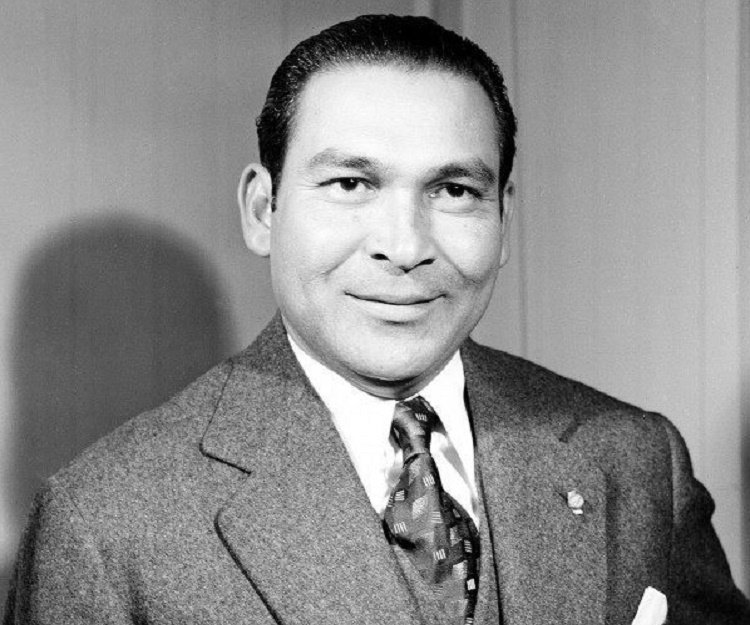 March 10, 1952
March 10, 1952
Convinced that he could not win the elections scheduled for June 1952, Fulgencio Batista overthrew President Carlos Prío’s regime in a bloodless and masterfully executed coup d’état on March 10. The coup was almost entirely dependent on army backing and caught the Cuban population, as well as Prío and his followers, by surprise. Batista quickly consolidated his position by replacing dissenting army officers with his own loyal men, exiling or arresting key Prio supporters, and taking temporary control over the mass media. Prío himself sought asylum in the Mexican embassy and later left the country.
Batista justified his move by claiming that Prío intended to perpetuate his own rule and that the tendency toward violence evident in the country required the order or authority that only he could provide. Yet, other reasons perhaps better explain his actions. Batista was surrounded by a small and intimate group of ambitious and unscrupulous politicians who had been excluded from the political process by the two preceding Auténtico administrations. Batista himself longed for the power he once held and hoped his move would win him the popularity he always coveted but never achieved. His weak position as the elections approached, and the maneuverings of President Prío, who bribed a number of Batista’s allies into shifting their support, thus minimizing his political possibilities, convinced the old general that the only road to power was through violence.
The ease with which Batista took over underscored the weakness of Cuba’s political institutions and the tendency toward violence that pervaded the political process. The legislative branch was weak and permeated by corruption. The Ortodoxos were leaderless and largely ineffectual since Chiba’s death. The Auténticos’ corruption and inability to bring profound structural changes to the Cuban economy had cost them a good deal of support and discredited them in the eyes of many Cubans. The failure of this democratic reformist party was perhaps the single most important factor contributing to the 1952 coup and the events that followed.
The Cubans reacted skeptically to the new situation. Had it not been for the depressed status of the political life, as evidenced by the lack of respect for political figures, gangsterism, and graft that prevailed during the previous administrations perhaps the Cubans would have reacted more vigorously. Batista’s performance in 1944, when he allowed free elections, and his promises now for honest and impartial elections in November 1953, contributed to the people’s acquiescence. The swiftness of the coup and the display of military power by Batista also did much to contain whatever outbursts of opposition that did occur. Interested in stability and economic development, business groups, both local and foreign, welcomed to a large extent a regime that would impose order.
The establishment of the Batista dictatorship had a profound impact on the island. Writers decried the moral decomposition of the republic and even questioned the ability of the Cubans to govern themselves. Although themes like nationalism, reformism, and anti-Americanism were still present in the literature after 1952, they were now impregnated with pessimism and sadness over the future and over the retrogression that the return of a military dictatorship meant for Cuba’s political development. Writers pointed out that there was a feeling of general guilt over the Cubans’ inability to live up to the principles and examples of the founding fathers. They insisted that the Cubans rejected their individual responsibilities by claiming that society as a whole was no fulfilling its collective responsibilities and came to believe that they never deserved men like Martí, Maceo, or Gómez.
The idolization of Marti grew even stronger after 1952. Two events, the half-century commemoration of the birth of the republic in 1952 and the one-hundredth celebration of Marti’s birth in 1953 gave rise to a literature attempting to assess the development and status of Cuba at such significant junctures. A variety of books and articles appeared on Marti’s life and on the epic struggle for Cuba’s independence. In them, and especially in numerous speeches. Marti’s teachings were contrasted with the conditions in which the dictatorship had submerged Cuba. Old revolutionaries, idealistic youngsters, intellectuals, journalists, and crooked politicians as well, invoked Martí. They all seemed to find shelter and comfort by repeating his words and bathing in the baptismal stream of his thought.
Writings and speeches soon gave way to violence, however. The imposition of strict censorship by the Batista regime silenced all criticism. Opposition leaders were either jailed or exiled. Repression increased. The voices that clamored for a peaceful solution to the interruption of Cuba’s constitutional process were soon drowned by voices clamoring for violence. Cuba again was submerged in terrorism and violence, a violence that finally culminated in a major revolution and a totalitarian state.








